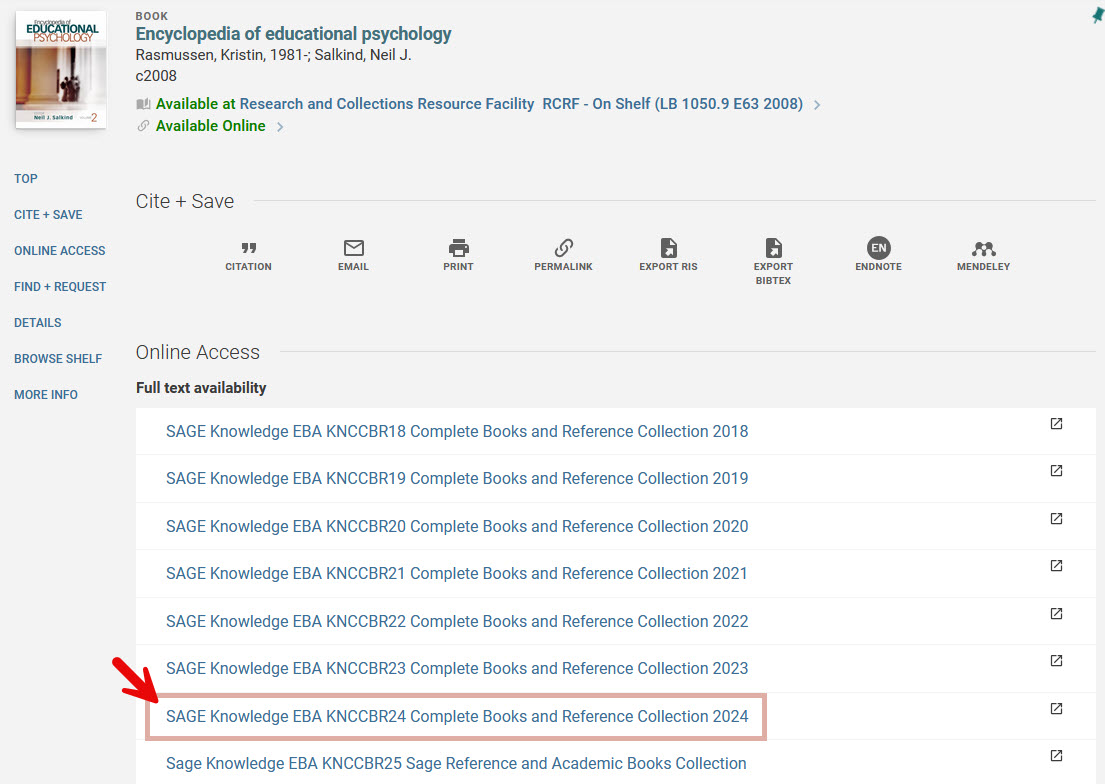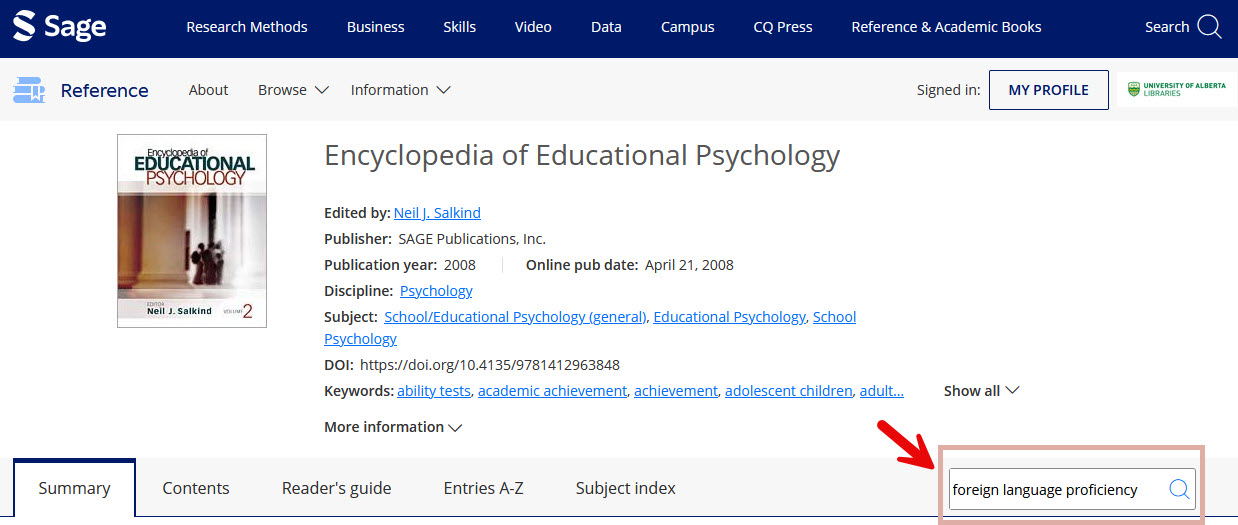1.3 Finding Answers Using Background Information Tools
- Use background information tools, like dictionaries and encyclopedias, to find answers to some of the questions you noted in chapter 1.2 and note the alternative terminology used in discussing a topic.
For example,
What is foreign language proficiency? - Consult, for example, the EDPY subject guide’s Special Education or Counselling pages for background information suggestions to explore, like dictionaries, encyclopedias, and other reference titles.

- For example, the EDPY Library guide includes The Encyclopedia of Special Education[1] which, in the context of the research question, can provide a better understanding of the concept of foreign language proficiency.
- N.B. Log in using your Ualberta CCID and search the full text of the encyclopedia using the ebook’s search box at the top right-hand corner to identify relevant chapters or browse its table of contents.

- The chapter on the The Cattell‐Horn‐Carroll Theory of Cognitive Abilities found in the search above uses words like grammatical sensitivity and crystallized intelligence which will help you later in building your searches and using alternate keywords.
- N.B. Log in using your Ualberta CCID and search the full text of the encyclopedia using the ebook’s search box at the top right-hand corner to identify relevant chapters or browse its table of contents.
Academic or scholarly works often have a bibliography or a list of references and works cited that you may consult for more information at the end of an article or chapter.
The Encyclopedia of Special Education’s entry on “Bilingual Special Education”[2] is an example of such writing where a list of references can be useful for more information. The ![]() symbol in the image below will highlight such a cited reference.
symbol in the image below will highlight such a cited reference.
Finding the titles cited in a list of references is a result of what is called a known search. See the next chapter for searching for titles that you know exist.
- Another resource to explore is the Encyclopedia of Educational Psychology[3] listed on the main EDPY library guide page. There are a number of other dictionaries, encyclopedias, handbooks, and manuals on a variety of topics that will broaden your perspective of your topic.

Library record for SAGE Encyclopedia of Educational Psychology - To open the Encyclopedia of Educational Psychology, click on the most recent publication year link located in the section titled Online Access
- Type any relevant keywords in the content search box or browse the table of contents by clicking on the Contents tab.

Keyword search in SAGE Encyclopedia

